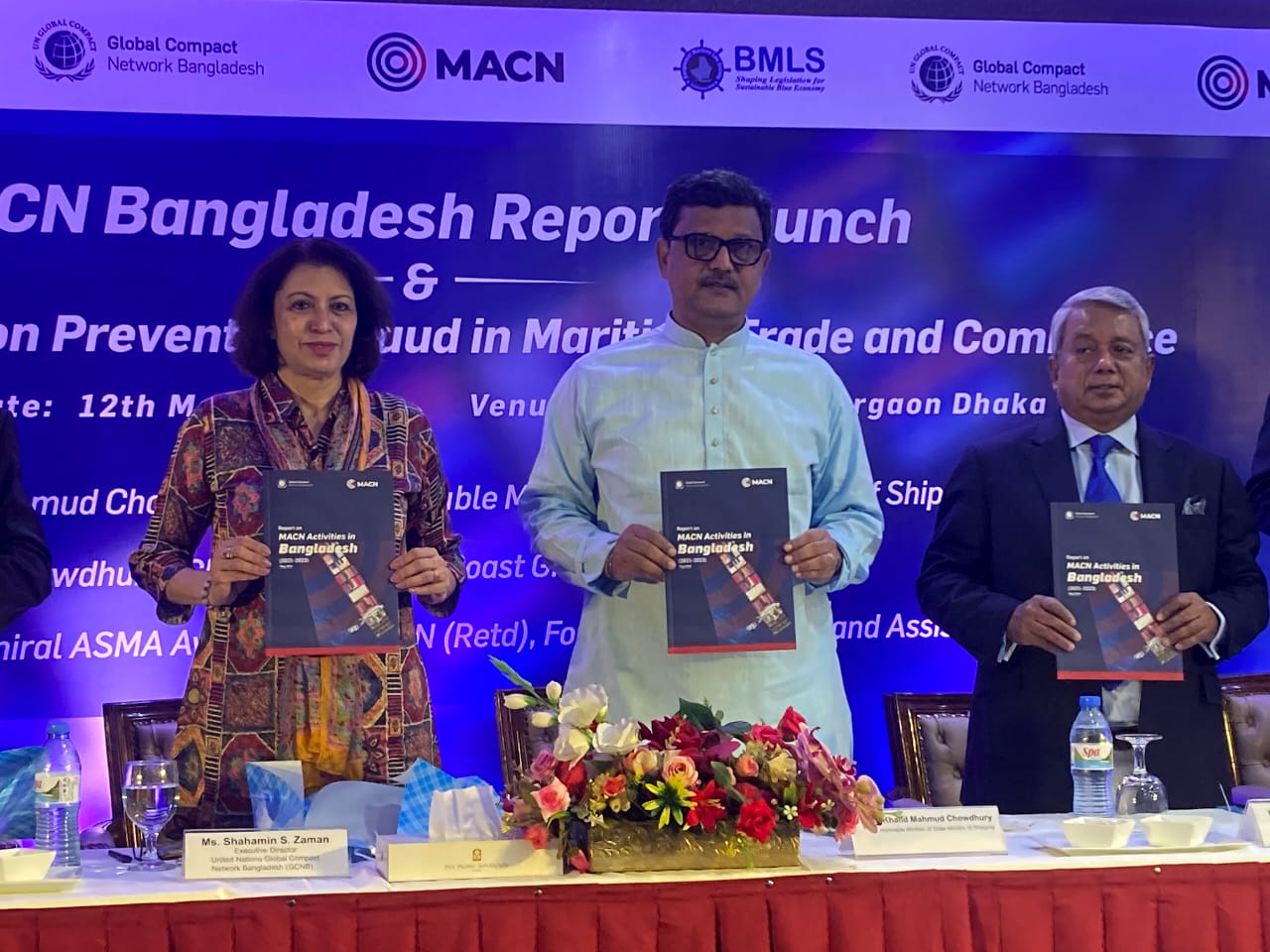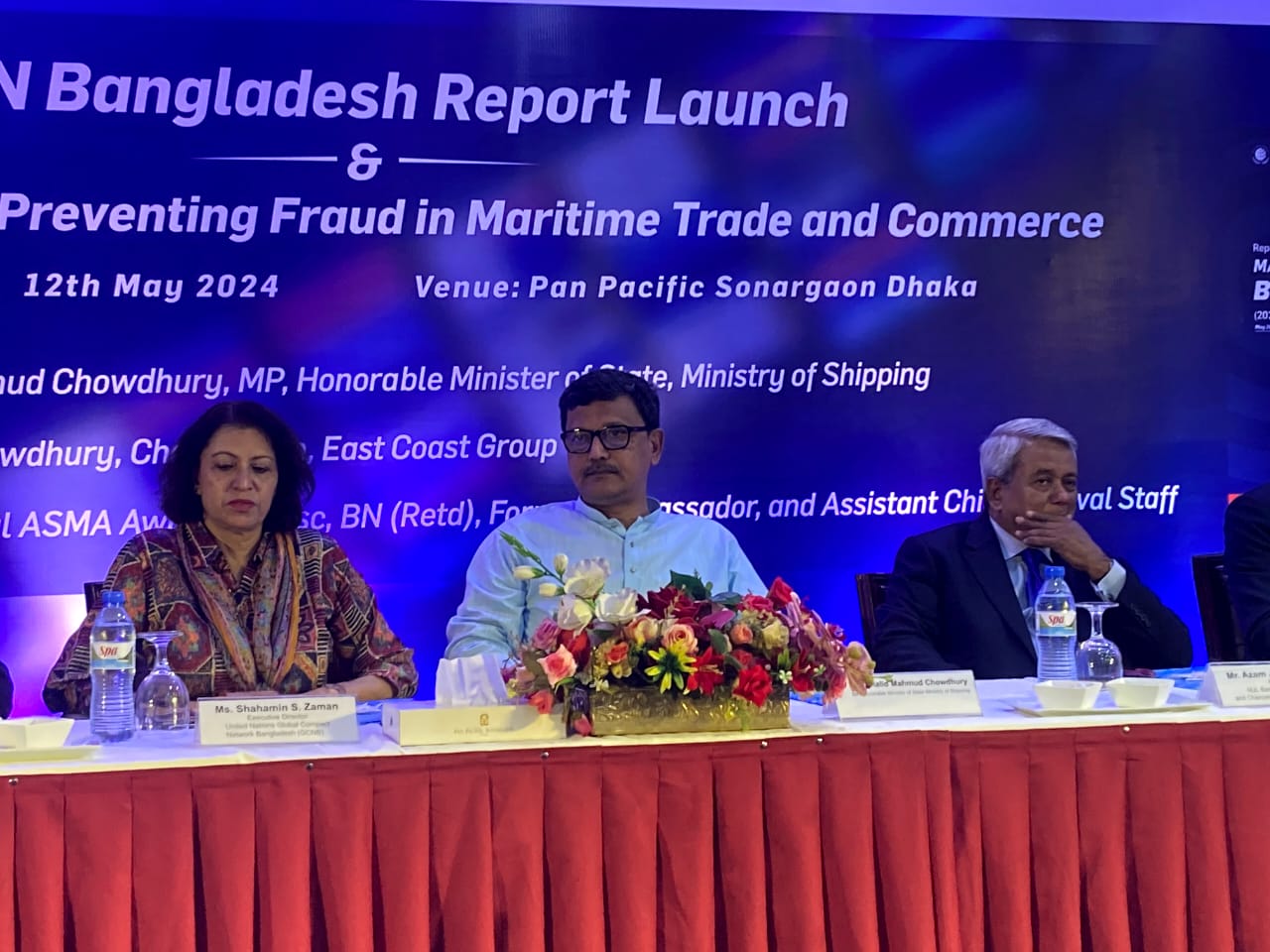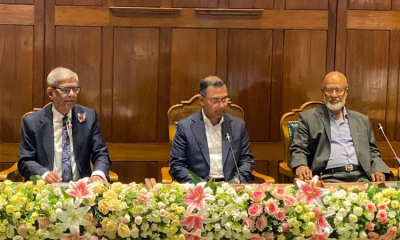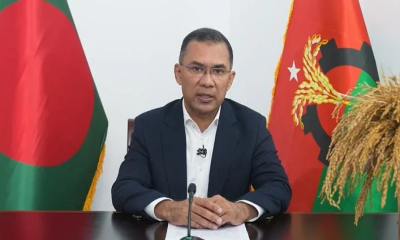Bangladesh`s progress isn`t just measured in economic terms anymore. According to Khalid Mahmud Chowdhury, the Minister of Shipping, it encompasses a society free from corruption. Speaking at the launch event of the "Maritime Anti-Corruption Network (MACN) Bangladesh Report Launch Event" and the seminar on "Combatting Corruption in Maritime Trade and Commerce" organized by the UN Global Compact Network, Bangladesh, held at Hotel Sonargaon in the capital on Sunday (May 12), he emphasized on these aspects.
"An advanced Bangladesh means a society where everyone enjoys the fruits of independence and sovereignty. Our vision is to create a Bangladesh that the whole world takes pride in, not just us. The development model we`ve crafted here knows no boundaries. We want to showcase to the world that the Bangladesh born out of the sacrifice of 1971, where blood was exchanged for independence, isn`t just for us but for the entire globe," said the Minister.

He further added, "The Government of Bangladesh adheres to a zero-tolerance policy against corruption. Corruption wasn`t built in a day here. Through numerous sacrifices, under the leadership of Bangabandhu, we`ve achieved an independent, sovereign Bangladesh. Within just 50 years of independence, our pride, our arrogance, everything was tainted by the martyrdom of Bangabandhu Sheikh Mujibur Rahman and his family. The national mourning over this tragedy has highlighted the corruption through the lens of nationalism. How these atrocities and murders have been glorified using state machinery has tainted every part of our society and nation. Overcoming this gruesome massacre was a challenge for us."
Minister Khalid Mahmud Chowdhury expressed, "Our challenge was to bring the perpetrators of the 3 million murders and the torture of millions of mothers and sisters to justice. We can proudly say that under the leadership of the current democratic government, led by the daughter of the nation, Sheikh Hasina, the trial proceedings of the Bangabandhu killers have been completed, and justice has been effective. War criminals have been tried, and justice has been served, and the trial process continues. Through this, Bangladesh has initiated democratic discourse. Media freedom has been ensured. The rule of law has been established."
"In the realm of state management, professionalism has been emphasized. Through these initiatives, we`ve managed to save the corrupt-ridden state. The grand plan to build a corruption-free state from this mess has been saved. Initiatives like these, initiatives for social organization, will further encourage us in this regard. It will create awareness among people," he added.

Minister Chowdhury emphasized, "The Maritime Anti-Corruption Network (MACN) has been working in Bangladesh for the last two years to raise a collective voice against corruption in the maritime sector. While corruption is not prevalent in Bangladesh, creating awareness on adhering to global standards of business ethics is crucial. MACN has created extensive awareness in the maritime sector and brought major stakeholders together on a common platform to ensure integrity."
He continued, "More than 90% of Bangladesh`s trade takes place through maritime routes, valued at $110 billion. Every year, over 4,000 merchant vessels come to Bangladesh`s ports for trade. Both in the government and private sectors, the number of flag-carrying vessels is increasing. This has been possible due to the business-friendly government under the leadership of Prime Minister Sheikh Hasina. Under her governance, port efficiency has significantly increased. By 2041, Bangladesh aims to transform into a developed and prosperous `Smart Bangladesh.` We have made all preparations to realize this vision."
Minister Khalid Mahmud Chowdhury mentioned, "To promote the development of Bangladesh`s maritime sector, Payra Port has been established. Capital dredging has been carried out at the outer and inner bars of Mongla Port. Upgradation of Chittagong and Mongla ports, acquisition of gantry cranes, and procurement of other handling machinery are underway. The construction of the Patenga Container Terminal is ongoing. The deep-sea port at Matarbari will create significant economic opportunities for Bangladesh and transform it into a regional maritime hub. Despite the challenges in the global maritime business, this year we`ve managed to maintain a 0.47% growth in bulk cargo transportation."
"In 2023, Chittagong Port handled 3.05 million TEUs (twenty-foot equivalent units) of containers, and it is expected to triple by 2030. It is projected to reach 48.2 million TEUs by 2040. Such business environments necessitate the improvement of ports and other maritime stakeholders in Bangladesh and ensure regulatory compliance," he remarked.
He concluded, "The current government is relentlessly striving to elevate Bangladesh`s business environment to global standards. Digitalization has been given top priority in port and maritime management. Digital data exchange of shipping information among containers, ports, agents, and customs is no longer something new. It plays a crucial role in port operations."












-20260217073221.webp)




-20260216115008.webp)















